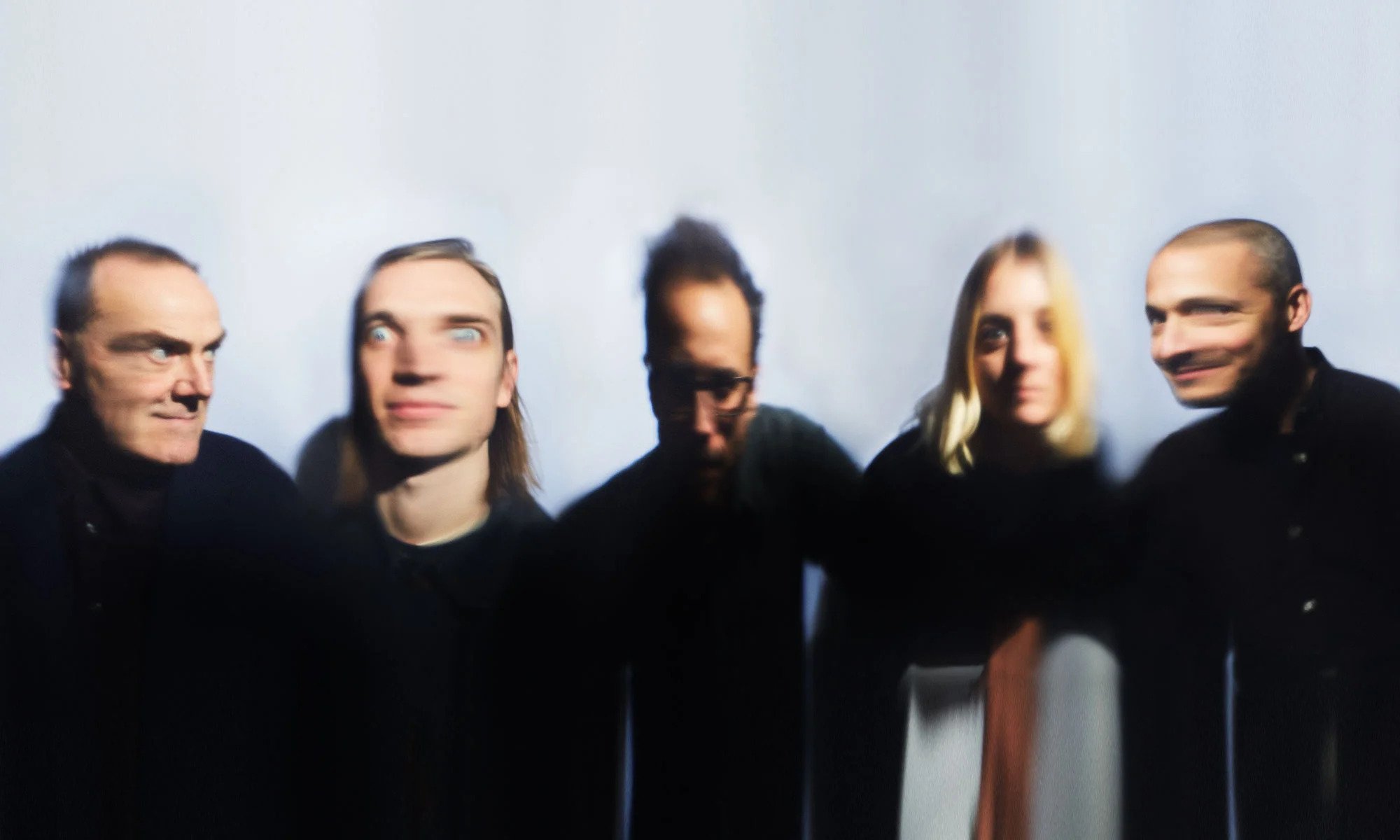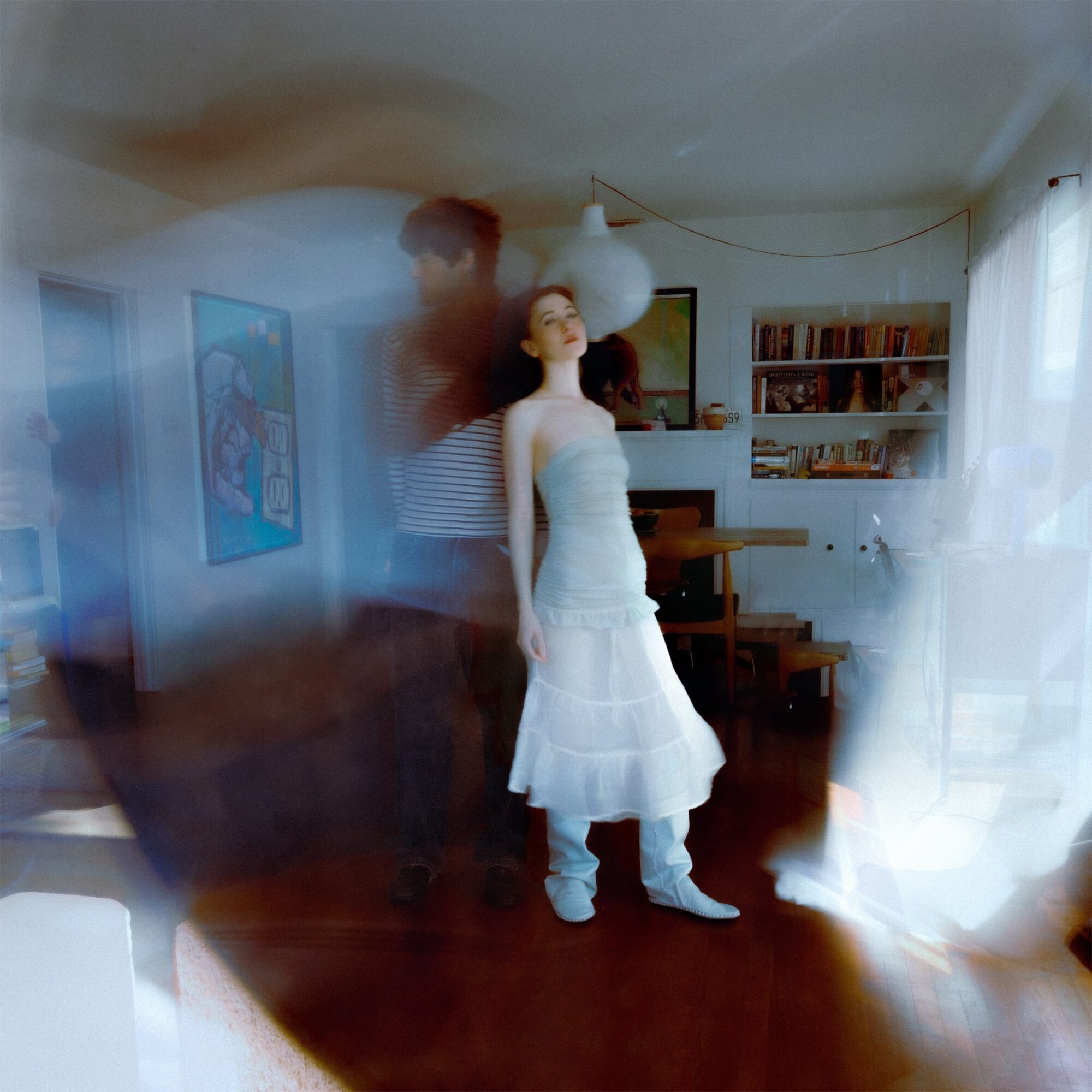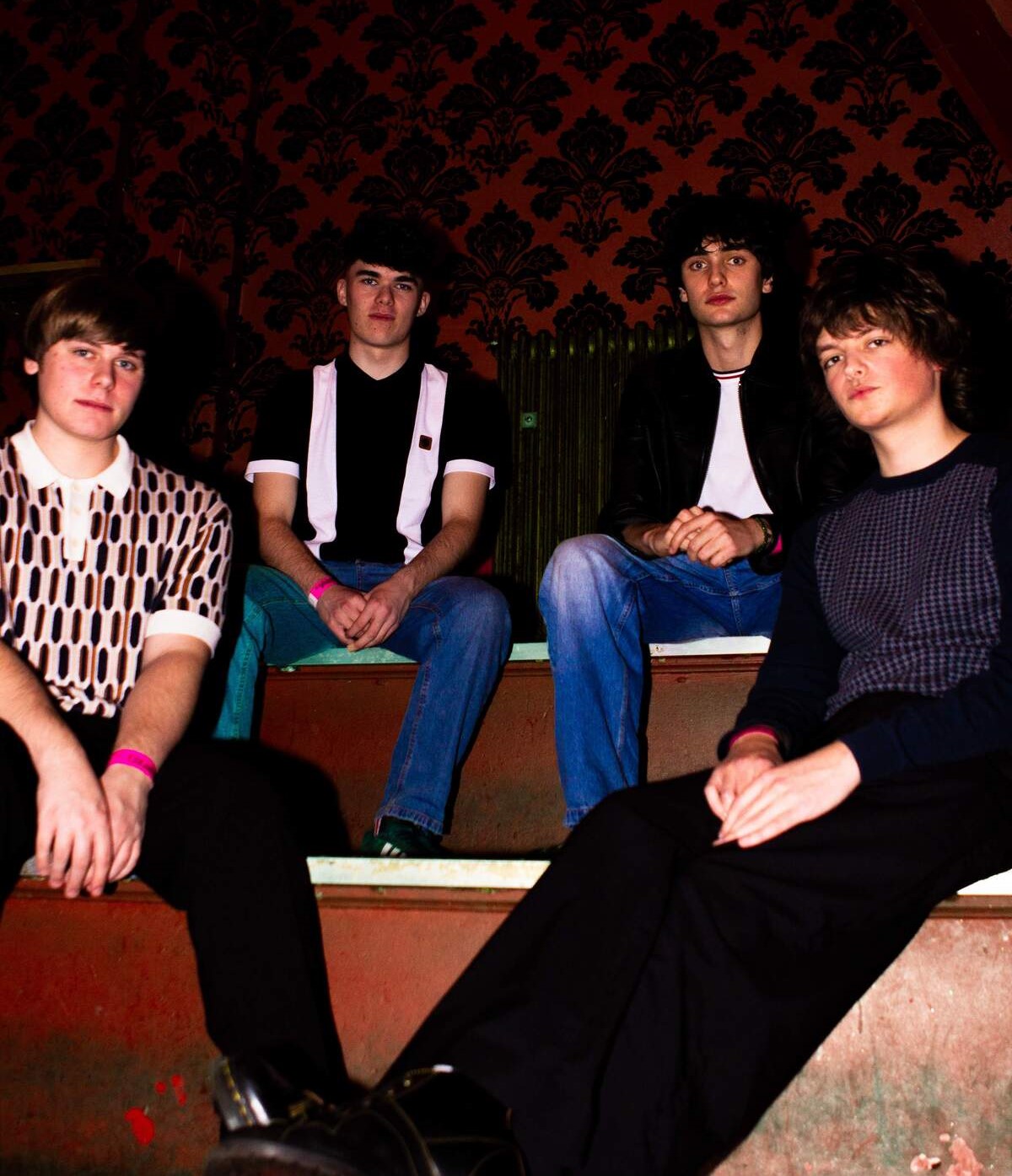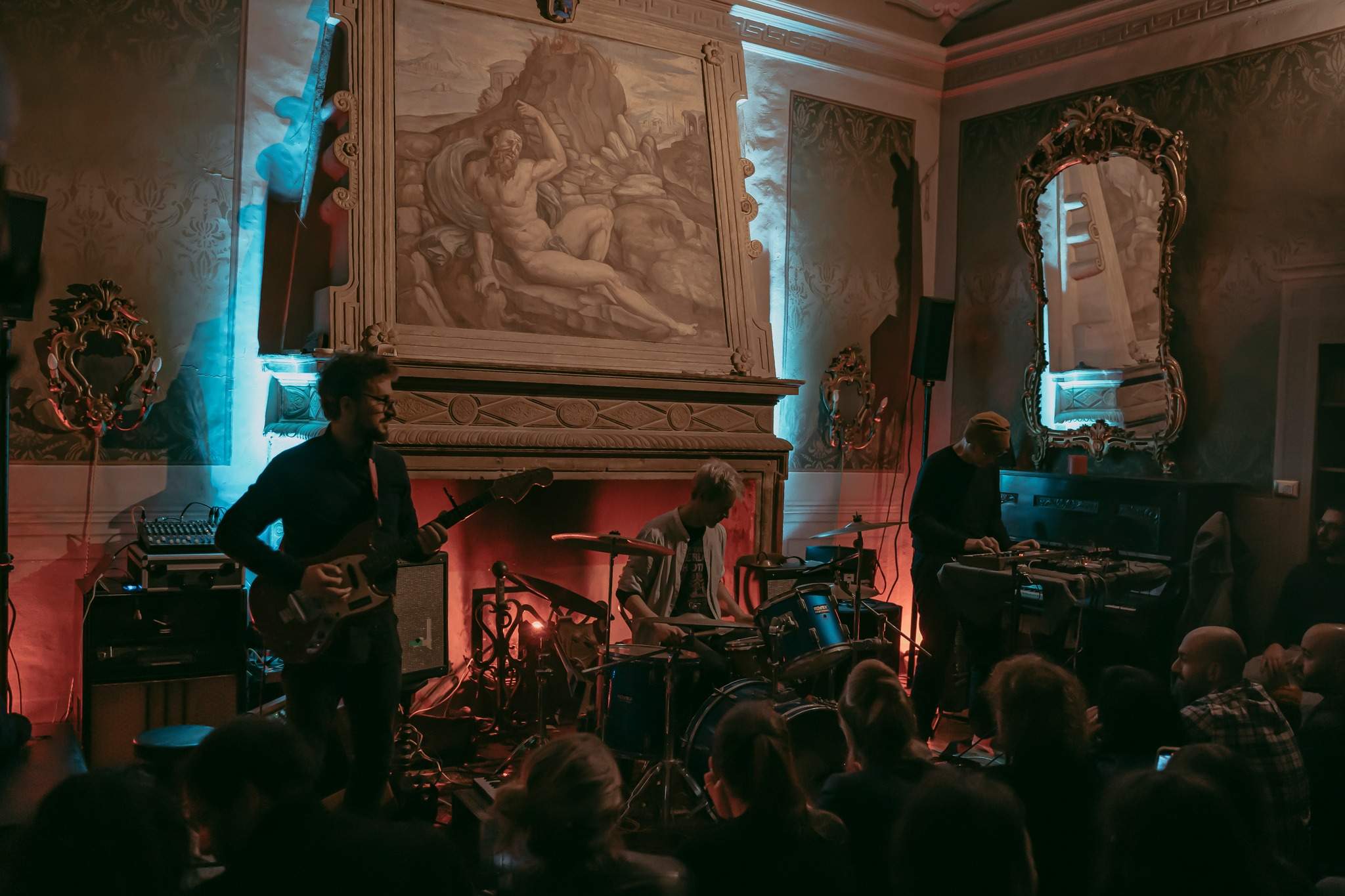Abstract Concrete | Charles Hayward | Interview
This Heat founder Charles Hayward recently formed a new band and released a fantastic debut album via State51 Conspiracy.
Charles Hayward recently entered his eighth decade, but instead of slowing down, he’s actually stepping the pace up dramatically. After a sensational string of gigs in the UK and the US as part of This Is Not This Heat, a newly revitalised and inspired Charles, finds a new creative outlet in the form of his new band, Abstract Concrete.

“I just want to integrate life and music into one thing”
It’s really great to have you again, this time discussing your latest project, Abstract Concrete. You have a brand new self-titled album out. What was the original idea behind the project?
Charles Hayward: Hi Klemen, good to talk again, I hope things are good. Yes, Abstract Concrete has moved things along for me big time, a big personal change. From the late 80’s to 2015 I worked on my songs solo, either with drums and electronics or piano and small instruments. The group music I was making was exclusively improvised. John Cage had this comment “In the future music will be collective improvisation or solo, because in both situations no one tells anyone else what to do.” But after revisiting This Heat as This Is Not This Heat I just had to reconnect with the energy that is released when musicians come together and work on music and refine that energy, building and building day upon day.
Music seems to be the driving force behind your life for many decades now. Do you feel that your approach to music changes during all the years or you keep following the same concept when it comes to creation of new things?
I just want to integrate life and music into one thing. I have a relationship with music like it’s a living being with whom I need to maintain respect and loyalty and love on a day-to-day basis. That’s been a constant for me since I started making music as a child. Another constant is wanting to organise the music in multiple ways to make different music and to explore multiple ways of organising in real life. And also to occupy different degrees of responsibility inside the music, that’s why I get involved in other peoples’ music, less often now but it’s all part of learning and relating from as many perspectives as possible. When things are good there is no “me.” But life is changing, things grow and bloom and eventually fade and my understanding of what music can do and how to use that to move people emotionally and physically has developed and changed because of that. The music has changed me throughout my life and teaches me what I have to do next. The sound in my head changes all the time, it changes in front of my ears. I can’t imagine it being any other way.
Abstract Concrete features Agathe Max (Mésange, UKAEA) on viola, Otto Willberg (Yes Indeed, Historically Fucked) on bass, Roberto Sassi (Snorkel, Cardosanto) on guitar, Yoni Silver (Hyperion Ensemble, Steve Noble) on keyboards and Charles yourself on drums and vocals. How did you get this line up together and how would you describe the chemistry between you playing together?
I am always looking for people with open ears. I’d played with Yoni and Roberto in a couple of different situations and had known Agathe’s playing for a few years and it always felt good whenever we met at gigs. I had seen Otto playing improvised music gigs on double bass and I just liked the way he handled things. I didn’t ask them so that there would be a predictable outcome, it was more like I wanted us to go on an adventure together. Having said that, the vibe between us is incredible, so supportive and focussed. The more the music grows the more we can grow together too.
“It’s more about process than product”
The music itself is kind of a mixture of style combining 60s rock with experimental edge to it. What do you think your main source of inspiration comes from this time around?
I just make what the music tells me and when I say music that includes the interaction with the band and the audience and the instruments and the acoustic space and all the people around making the music happen and giving it meaning. I don’t really see things in eras or genres or any of that and I never have, it’s always been just music. I mostly pay attention to everyday life, going to the shops to buy food, the city crowds, public transport, talking to my grandchildren. The music just grows in response to that sort of stuff, it’s more about process than product.
I read that you work in a very complex and unique way, trying to finish old fragments of songs that you have written a long time ago. Tell us a bit more about the tracks on the latest album? Would you say there’s a standout track that really means something special to you?
It’s not so much about trying to do anything, it’s more about letting things take their time, it’s one of the benefits of making music all my life. That was what happened with This Heat, for instance, ‘Sleep’ on ‘Deceit’ was a development of a song I wrote when I was twelve. It’s just that I’ve accumulated more and more material. I was playing a piano thing the other day that I found when I was nineteen, every time I play that fragment it reminds me of the piano at my parents’ house. Some tunes I carry around in my head for years without working them out on the piano just so they can stay open to change. ‘The Day The Earth Stood Still’ was like that and as soon as I started finding the words for the tune the chorus and the bridge just grew naturally out of that. ‘Ventriloquist/Dummy’ was the opposite, I’ve wanted to write a song about ventriloquism for years and years but it’s only now that the music and the global situation made it possible.
When it comes to lyrics, well, they seem to be a reflection of the times we live in. Are you an optimist and pessimist considering you were active already in the 60s when a lot of social changes were happening?
Yes, the lyrics are responses to the past few years. And yes, I am an optimist and pessimist. Isn’t everybody?
Can you share some further words about the recording and producing process for the album?
I’ve been recording in my studio at Lewisham Arthouse for the past few years but there was a serious upgrade for the Abstract Concrete sessions and that made me nervous as well as excited. Nathan Greywater helped me with the upgrade and set up and engineered the sessions. We did the overdubs at Snorkel Studio with Frank Byng who played with This Is Not This Heat and is an old friend and then we mixed it together at Snorkel. It took a while because we were ducking and diving around the Covid restrictions and we had to concentrate hard to maintain flow which is normally just like breathing.
What’s next for Abstract Concrete? And on that note, how did you get the name for the project? There must be a story behind it?
December we’re all over the place, everybody is a full-on musician and the band benefits big time from the other music we all play outside of the group. Agathe and Otto have gigs in Europe, we’ll meet a few times because we’re working on new material (the second album is like a shadowy figure slowly approaching) and then rehearse through January for European gigs in February, March we start recording, April more gigs, have the album recorded by early July. At least that’s the current plan but things change. The band name was the title of a song but then I changed the lyrics and the title too. Music is always abstract, it sort of stands to one side of everyday life and in some ways is very like mathematics, but it’s effects on us as humans are real and tangible (which is why Control is always trying to diminish and trivialise music, it’s our tool for resistance).
Are you involved in any other bands or do you have any active side-projects going on at this point?
I am still playing my solo music, Zig Zag + Swirl is voice, drums and a system of electronics using a sort of controlled chance with no fixed starting point for the three independent signals and no click track either but with songs and strong beats and the electronics controlled by simple volume pedals. The audience does the work. I also have a set of songs Begin Anywhere at the piano and another using small instruments called Performance/Scaffold but these two are sort of melting into each other depending on the technical possibilities at the venue. I used to be playing solo all the time, but now it’s a much rarer thing. Somehow that feels right.
I also programme MUSIC IS SOCIAL SPACE for the Albany Deptford, which is a fantastic venue five minute walk from where I live. I’ve just recently become an Associate Artist, the opportunity to share and make for my neighbourhood is very important to my work.
Albert Newton is a group with Pat Thomas on keyboards and John Edwards on double bass. These are two serious heavy musicians, I am deeply privileged to have worked with them since the late 90’s, originally as a quartet with the late Harry Beckett on trumpet, we make music at the moment. Our first album ‘If Only Silence Was Round’ will be released via Shrike Records in February. I’ve got a three day residency at Café Oto in February so Albert Newton will play there on the second day. The first night is focussed on South East London and the amazing local scene and I’ll be playing with a new developmental project called Overcomelt. Abstract Concrete will play the third day of the residency. February 22, 23, 24, Café Oto, London.
Klemen Breznikar
Headline photo: Lewis Hayward
Charles Hayward Facebook / Twitter / SoundCloud
Abstract Concrete Instagram / Bandcamp
State51 Conspiracy Official Website / Facebook / Instagram / Twitter / Bandcamp / YouTube
‘This Echo’ by Abstract Concrete | New Self-Titled Album
This Heat | Interview | Charles Hayward




